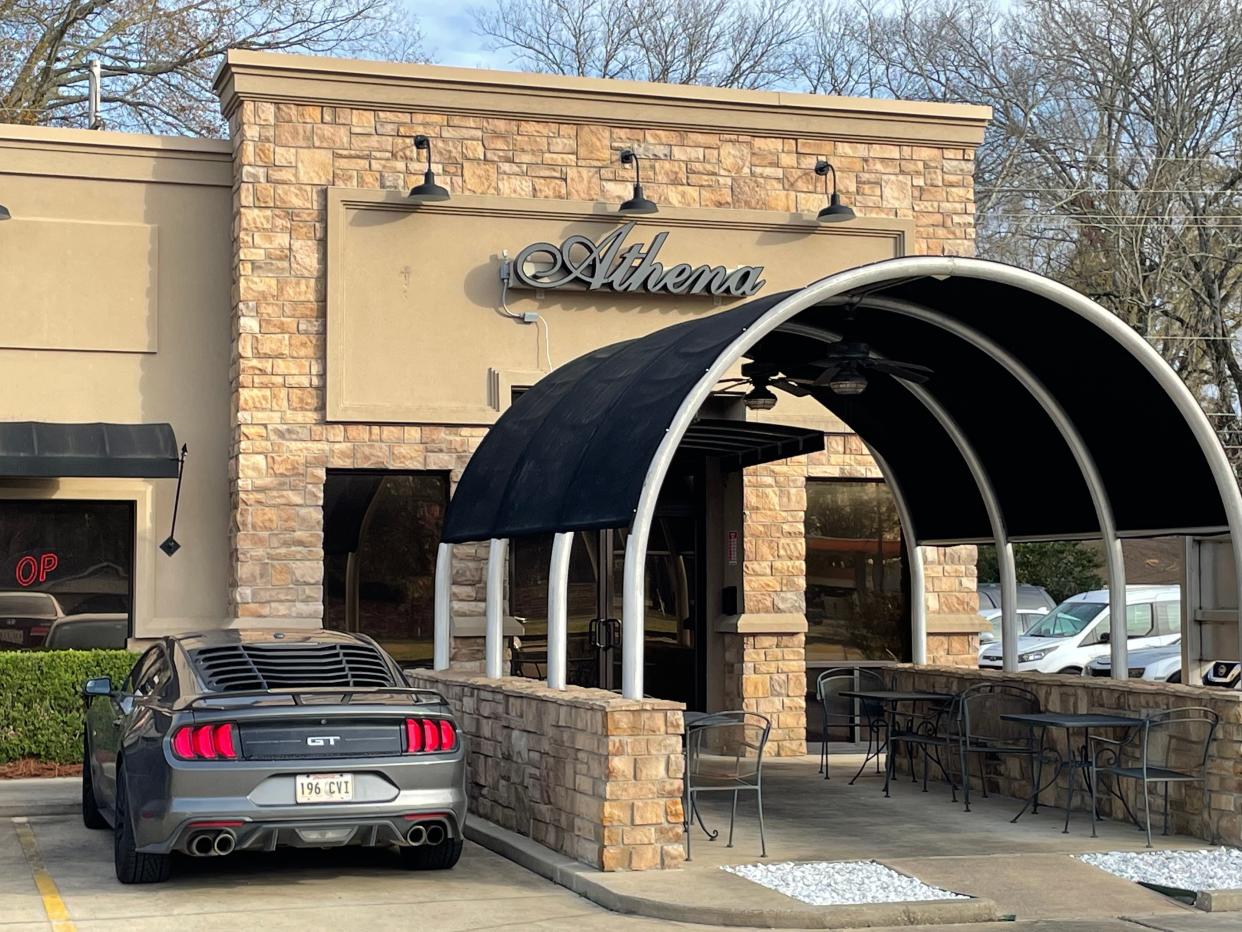Northeast Louisiana restaurants hit by COVID surge, face staff shortages, supply delays

- Oops!Something went wrong.Please try again later.
The omicron surge in the COVID-19 pandemic has made life tremendously difficult across the restaurant industry, causing business owners to scramble for both employees and supplies.
Restaurant owners in Monroe and West Monroe say there just aren't enough staff members to keep up normal operations. Athena of Monroe owner Issam Javer said employees call in sick, leaving the restaurant without enough staff to go around.
More: Teacher, staff shortages were a problem for years, COVID makes them critical
"Staffing-wise, it's just a lot of sick days and stuff that's messing with the schedule," Javer said. "You don't want to hire too many people, and then whenever they're sick, you're short-staffed. That's been that's been a huge issue."
Pam Hendrixson, owner of The Corner Coffeehouse in West Monroe, said the omicron surge has led to many employees not coming to work, either due to being exposed to COVID-19 or testing positive for the virus.
In addition to staffing shortages, another problem exacerbated by the omicron surge has been supply-chain delays. Javer said it's been harder to get meat, to-go boxes and silverware, and when he is able to find them, their prices are double or even triple the usual amount.
Hendrixson said that with ordered items being six weeks out, her business has had to change several items ranging from the bowls they serve their food in to brands they offer.
"It's gotten worse the last month," Hendrixson said.
The omicron variant hit Louisiana in mid-December, and case counts reached an all-time high for the state at the beginning of January with more than 15,000 COVID cases in one day. Despite the surge, there have not been any new mitigation measures set in place by Gov. John Bel Edwards, including masking mandates or limitations on restaurant capacities, that Louisiana faced when the pandemic began.
More: Parents' group gets Ouachita Parish Schools to overturn expired COVID emergency policy
With the omicron variant of the COVID-19 coronavirus being more transmissible than the previous ones, restaurant owners said they've seen their customer base become more wary about dining in, thus causing an increase in to-go orders. According to a January nationwide survey from the Independent Restaurant Coalition, 60% of restaurants said their sales decreased by more than half in December as part of the omicron surge.
Chris Lewis, owner of Coney Island Connection in West Monroe, said he has had to rely upon a staff of family members to stay afloat.
"We were doing great until the surge came, and now I see the decrease in the customers due to the fact that there's no limit set on how many people can eat inside of the restaurant," Lewis said. "Now I believe that people are just being more cautious; people are calling in versus dining out more."
Lewis said he's had difficulty sourcing foods he imports from South Louisiana, such as fried pickles and onion rings, and the effects of Hurricane Ida on top of the pandemic have only made things worse.
Though many restaurants received some form of federal aid, only 21 establishments in the Twin Cities received money from the Restaurant Revitalization Fund, including Coney Island Connection. Lewis said the $151,393.49 that he received was "very helpful" in keeping his doors open.
However, 25% of those who did not receive RRF money are facing eviction, according to the IRC survey. Almost 50% of restaurants that did not receive an RRF grant are facing bankruptcy.
More: Ouachita, Monroe schools have remained open, nearby districts closed for COVID: Here's why
Locally, businesses like Athena and The Corner Coffeehouse are in the clear and expect to maintain their operations. Both businesses received a COVID-relief loan, and neither has considered bankruptcy.
Hendrixson said her business is closing its soup and salad bar because folks have simply stopped coming.
"We're losing money on that section because I think a lot of people aren't eating out as much anymore, and when they do, they're not going to a serve-yourself restaurant," Hendrixson said.
Lewis said Coney Island Connection has also experienced the possibility of relief through its landlord. According to Lewis, the landlord said to reach out if they ever needed assistance.
Javer said his experience has been the opposite. Though his landlord offered one month of relief at the beginning of the pandemic, there has been no offer since then. Furthermore, that one month of rent was then tacked on to the end of the lease.
More: Downtown Monroe restaurant to go out of business after 37 years
Though operations used to be predictable, Javer said most everything remains up in the air. The customer base ebbs and flows instead of coming in at their once-usual times. Staff members call in sick as they need to, and supply shipments arrive on their own time.
"We take everything really seriously," Javer said. "It's a lot more work to be put in, but we're still we're happy to do it. Just trying to keep trucking along."
Follow Sabrina LeBoeuf on Twitter @_sabrinakaye and on Facebook at https://bit.ly/3B8sgHo.
Support local journalism by subscribing at https://cm.thenewsstar.com/specialoffer.
This article originally appeared on Monroe News-Star: Restaurant owners hit hard by omicron COVID surge, staffing shortages

